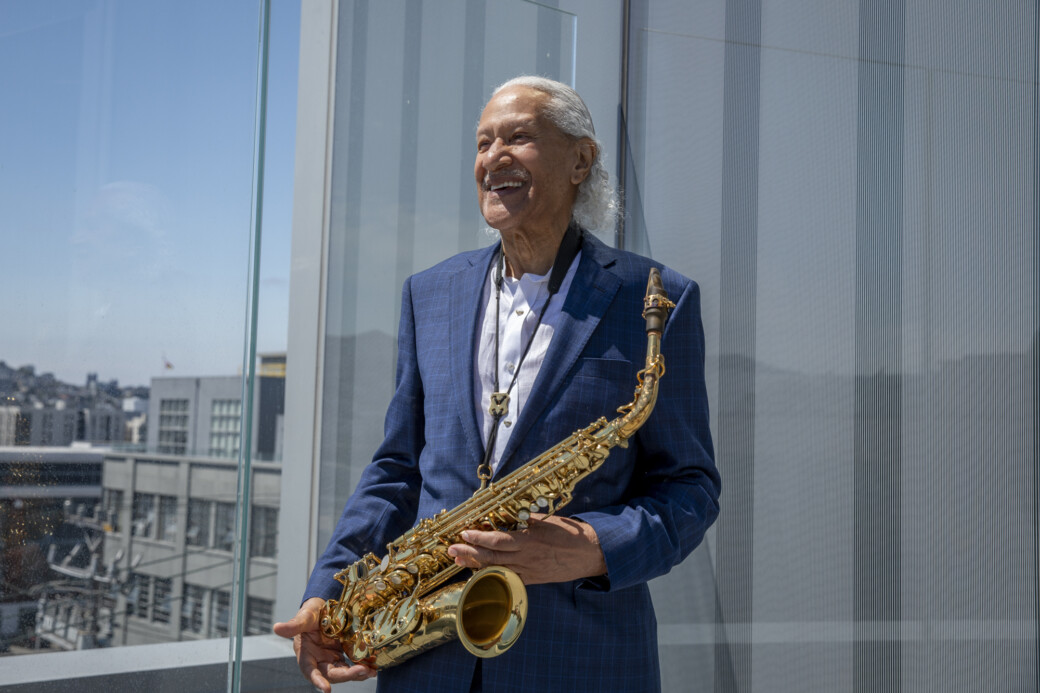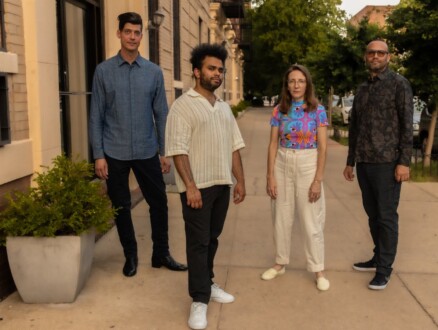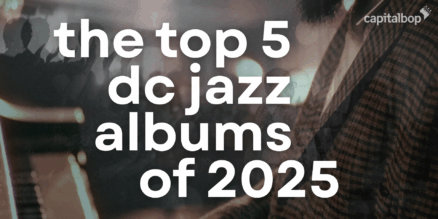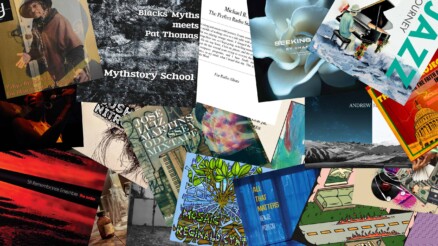Gary Bartz on his journey toward musical unity

Saxophonist and composer Gary Bartz has had a storied career. From his beginnings as a sideman for jazz greats like Art Blakey, Abbey Lincoln and Miles Davis, to leading his own group, NTU Troop, he has been a major figure in jazz history — a fact that was recognized in grand fashion last year, when he received the National Endowment for the Arts’ Jazz Masters fellowship.
Bartz was deeply immersed in jazz from a young age. He still recalls the distinct moment, at six years old, in which he found his affection for music after hearing the captivating sound of Charlie Parker.
Hailing from Baltimore, Bartz first came into contact with future collaborators like Max Roach in his early teen years, sitting in with their bands whenever he could find the chance. At age 17, Bartz moved to New York City to further pursue his dreams of being a musician. He attended the Juilliard School of Music for three semesters, supplemented by gigs he picked up at his parents’ jazz club, the North End Lounge, during his trips back home.
In 1962, he joined the Charles Mingus Jazz Workshop, where he performed with now-legendary artists like McCoy Tyner and Eric Dolphy.
Bartz stepped into his first role as a bandleader in 1968 with Libra. In 1970, the NTU Troop made its recording debut with Home!, signalling what would become the group’s signature sound: dynamic compositions that balance funky, soulful grooves with inventive free-jazz improvisations.
The group went on to have a strong presence in the spiritual jazz scene of the 1970s, blending sounds of soul, funk, African folk, hard bop and avant-garde jazz. Their music was shaped by heavy socio-political content, grounded in Bartz’s interactions with the radical philosophies of Malcolm X and the Black Power Movement, his experiences with racial segregation and a desire to center African worldviews in his art.
The genreless sound of NTU Troop later became an influence in the hip-hop scene, most notably A Tribe Called Quest’s 1991 hit “Butter.”
Bartz and NTU Troop, along with special guest Theo Croker, will be bringing their talents to The District on June 18 for a concert at the Library of Congress. Ahead of his visit, Bartz sat down with CapitalBop to talk about his entry into the jazz world, ruminate on the spiritual power of music and reflect on the struggle between creativity and commerce.
CapitalBop: You grew up in Baltimore, a city with a very rich and long heritage of Black American music. African cultural roots run deep there. How did this influence your artistry, your approach to music and your exploration of various African-American musical styles?
Gary Bartz: Music, to me, is nature’s gift to the universe as a religion. It’s not a man made religion. You can make up any story and make a religion of it. We know sound is real. Usually the most powerful people on Earth have been musicians. Michael Jackson was more powerful than any president of any country, because he united the world. Politicians cannot unite the world because it’s too diverse.
Music brings people together. It’s in the church — and it’s in the church for a reason. Music is the most powerful religion ever, and if we ever accept it formally, I think it would heal a lot of things.
CB: So, to you, music is a universal language, it connects everything. What do you hope to communicate through your music?
GB: I hope it makes you feel good, for one thing, and I hope it brings you in touch with reality. When we perform, normally, I don’t call a set list. The musicians don’t know what we’re going to play because it depends on the way that the audience makes us feel. So, they become part of it. We play… a lot of times [in] dives and bars. [Places] that were never meant to present music. It was half a thought. They’ll say “well, we’ve got this basement here, we’re not doing anything, let’s make it a jazz club.”
When I used to play with McCoy Tyner, at Slugs’, Slugs’ was just a neighborhood bar, but when the music started, it became a grand theater, because the music transcends. Music is our religion. It took me a while to understand, [but] that’s why I was so attracted to it. Most great musicians, when they start at a very young age, they understand the healing power of music.
CB: So you don’t define yourself by any one genre.
GB: There is no genres. Genres are for the public and those who don’t know. Musicians know. That’s why Stravinsky used to go see Charlie Parker; that’s why Charlie Parker used to listen to Stravinsky. We’re musicians, music is what unites us. Not just musicians, but any artists, are very dangerous to people who want to control. They’re dangerous because they don’t conform. They think for themselves.
CB: You grew up in Baltimore during a time where the city was deeply segregated. It was a contentious political era, lots of protest music. In what ways did your upbringing shape you as a musician? Did these experiences feed into your artistry?
GB: It was a very volatile time in the ‘60s. That’s when I really became of age. Being in a segregated city, there were many things about it, negative and positive. It allowed me to see things. I had to leave Baltimore because it was not a very kind place. My mom couldn’t try on clothes in the department stores. You had to be careful. We’d go out to the park and get chased.
In the school system, once a year we had Negro History Week. So we learned about all the famous so-called “negroes,” but there were many left out. It’s kind of a brainwashing, it’s a lying system. When I moved to New York, I had met Max Roach in Baltimore. I sat in with him when I was about 14 years old, and he gave me his number and said to tell him when I was coming to New York.
I saw a book at Max’s house called 100 Amazing Facts About the Negro — I couldn’t believe it, all the different people who they don’t tell us [about], so that began to open my eyes. I began to really see what this country has done and what this world has done. It’s a white supremacist society we’re living under. There have been times when there were African societies that controlled the world.
“Music… is nature’s gift to the universe.”
CB: Your band NTU Troop — the name itself is rooted in African heritage, NTU being a Bantu word symbolizing unity of all things, spiritual and physical. How did you come up with that name? What does it mean to you?
GB: Even before I accepted music as a religion, I had subconsciously accepted it. I wanted a band that could play anywhere. We didn’t need a piano. That’s why we didn’t have a piano. We could go out in the middle of the jungle and play.
That was the initial concept and also the troop was everybody that loved the music and everybody that came to see us. So we would encourage people to bring percussion instruments and they would play along with us because they were part of the troop.
CB: What inspired that communal act of music?
GB: I felt that we needed that. I was ready to join the Black Panthers or something like that, but by knowing Max Roach and Charlie Mingus and Gigi Gryce and other musicians who were thinking about the dilemma that we face, I learned we don’t control anything. You’d go to the record label and they’d want to put your songs in their publishing company; they want to own your masters. So we were learning how to control our own selves and have our own record labels. Duke Ellington tried to have a record label, Dizzy Gillepsie, Max Roach, a lot of people had record labels, but they’re not gonna let us do that. They’ll kill you first. Because that’s gonna say to other people ‘maybe we can do that too.’ They want to control it, they tell you they can make anybody a star, sell anybody’s records.
CB: What would you say is the most powerful project you’ve ever worked on?
GB: It’s been so many, I don’t know. But I will say that I feel sorry for the young musicians of today because they have nowhere to learn how to do this. You cannot learn it in school and you can’t learn it with your peers. You can only learn it by working with the elders and that’s how it’s passed on. The griots pass it on to the next generation.
They’ve done away with all of the bands — and don’t think it just happened, there was a purpose. They broke up Tommy and Jimmy Dorsey, they broke up Wynton and Branford, they broke up Cannonball. They break up bands because their feeling is, if they’re popular, we can make twice as much money if each one of them has a band. That’s out of business.
Today, it’s so many ways we could gain at least a little bit of control over ourselves, but it takes trusting each other and uniting with each other. I think that’s why religions are powerful, because it’s a group of people uniting with one thing in mind. Well, everybody likes music, or most people [do]. That can unite us, but you have outside forces fighting against that.
CB: Your music is really grounded in ideals of Afro-centrism, and that era of the 1960s and ‘70s was a time of Black pride and heightened racial consciousness. There was the Black Arts Movement and the Black Power Movement pushing principles of self-determination. How do you feel we could connect that radical socio-political positioning of the ‘70s and bring it into 2025, especially when Black art is still being censored and becoming more commercialized?
GB: This is a very spiritual thing. I’m gonna do this one way or the other. I don’t need to go out in the world and do it. I do it everyday. We can’t seem to unite. We can unite on stage in a band, but offstage, we’re all going different places. In the ‘60s, we were aware, we were trying to unite. We had organizations — and there always have been organizations, like [in] Chicago, Saint Louis, New York, Baltimore.
To answer the question, I don’t know. It’s only up to us and it’s up to the young people. I’m tired, you know. You fight and then you pass it to the next generation and teach them who they are, where they came from, how powerful they really are.


